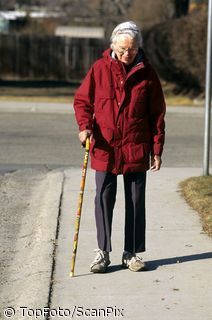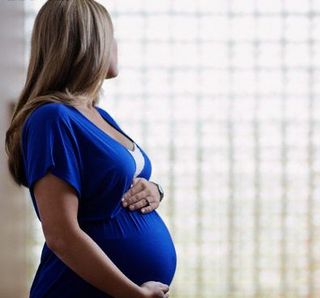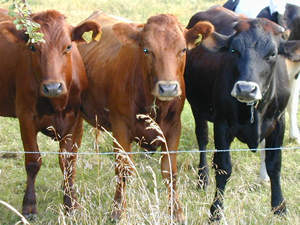European Union supporters in Latvia and Estonia expressed concern Thursday about a new survey pegging their countries as the most EU-skeptical in Europe
Published:
4 August 2003 y., Monday
European Union supporters in Latvia and Estonia expressed concern Thursday about a new survey pegging their countries as the most EU-skeptical in Europe—findings that come just two months before both Baltic states hold referendums on membership. A mere 32 percent of Estonians and 37 percent of Latvians agreed entry would be "a good thing," making them the most pessimistic of those questioned in the EU study released Wednesday. By contrast, 72 percent of Cypriots and 61 percent of Poles said joining would be good for them.
Latvia and Estonia will be the last of 10 EU candidate countries to put the issue of entry to a vote—and observers say there's now a chance that one or both nations could become the first to reject membership in Europe's most powerful multilateral club.
"People are afraid, they don't know what to believe and they're confused," said Pille-Mai Helemae, spokeswoman for the high-profile "Yes to the EU" group in Estonia. "It's going to be a hard fight. But in the end, I'm sure enough people will see more pros than cons to membership." Confusion about the EU was illustrated in the biannual Eurobarometer _ which questioned 1,000 people in each candidate nation in May—with 62 percent of Latvian and 71 percent of Estonian respondents saying they were either poorly informed about the accession process or not informed at all.
The Czech Republic, Hungary, Lithuania, Poland, Slovakia, Slovenia and Malta have already approved EU referendums, most by wide margins. Cyprus is leaving it's decision to lawmakers. If Estonia and Latvia pass their plebiscites on Sept. 14 and Sept. 20 respectively, they would join the EU together with the other candidates in 2004.
Virtually all top leaders in Estonia and Latvia have been pro-EU since the Baltic Sea nations regained independence—arguing that entry will raise their nations international stature, forge vital European trade links and boost living standards.
But official enthusiasm has never been matched outside the halls of power, with many Estonians and Latvians fearing a loss of sovereignty to the EU. Anti-EU groups compare what they say is an overly centralized EU with the U.S.S.R.; one of their symbols is an EU flag stamped with a Communist hammer and sickle.
If the results of the latest survey spooked EU supporters, they delighted opponents. "If you're a EU supporter, I believe the picture is even blacker," said Uno Silberg, who heads Estonia's "No to the EU Movement." "We're confident the referendum will fail."
Šaltinis:
balticsww.com
Copying, publishing, announcing any information from the News.lt portal without written permission of News.lt editorial office is prohibited.
The most popular articles
 Getting on their glad rags, pensioners in the India capital New Delhi stepped out on to the to strut their stuff.
more »
Getting on their glad rags, pensioners in the India capital New Delhi stepped out on to the to strut their stuff.
more »
 Attempt to reach agreement over the working time directive - which limits workers to 48 hours including overtime - broke down late Monday night (27 April) as MEPs and EU Ministers failed to agree.
more »
Attempt to reach agreement over the working time directive - which limits workers to 48 hours including overtime - broke down late Monday night (27 April) as MEPs and EU Ministers failed to agree.
more »
 She has only been on the job for 100 days, but First Lady Michelle Obama has managed to dazzle the public.
more »
She has only been on the job for 100 days, but First Lady Michelle Obama has managed to dazzle the public.
more »
 Across Europe the amount of time new mums can have off after the birth of their child varies from 14 to 52 weeks.
more »
Across Europe the amount of time new mums can have off after the birth of their child varies from 14 to 52 weeks.
more »
 The note was written by prisoners at the Nazis' Auschwitz death camp during World War Two and stuffed into a bottle.
more »
The note was written by prisoners at the Nazis' Auschwitz death camp during World War Two and stuffed into a bottle.
more »
 Spectators at a Kentucky race course were left shocked after an horrific crash involving a rider-less horse.
more »
Spectators at a Kentucky race course were left shocked after an horrific crash involving a rider-less horse.
more »
 As a family in Mexico mourned the death of the latest suspected victim of the swine flu, the deadly virus pushed its way into New Zealand and Israel.
more »
As a family in Mexico mourned the death of the latest suspected victim of the swine flu, the deadly virus pushed its way into New Zealand and Israel.
more »
 For the seventh time in a row spring will not be only a season of blossoming flowers but also a time when students all over the world can get to know more about the European Union.
more »
For the seventh time in a row spring will not be only a season of blossoming flowers but also a time when students all over the world can get to know more about the European Union.
more »
 Traditional Hungarian herdsmen don the clothes of an age gone by as they mark the start of the summer season by parading their flocks.
more »
Traditional Hungarian herdsmen don the clothes of an age gone by as they mark the start of the summer season by parading their flocks.
more »
 The jobless rate is rising faster among the young, underscoring the need for a new long-term strategy to address their plight.
more »
The jobless rate is rising faster among the young, underscoring the need for a new long-term strategy to address their plight.
more »